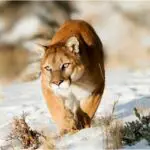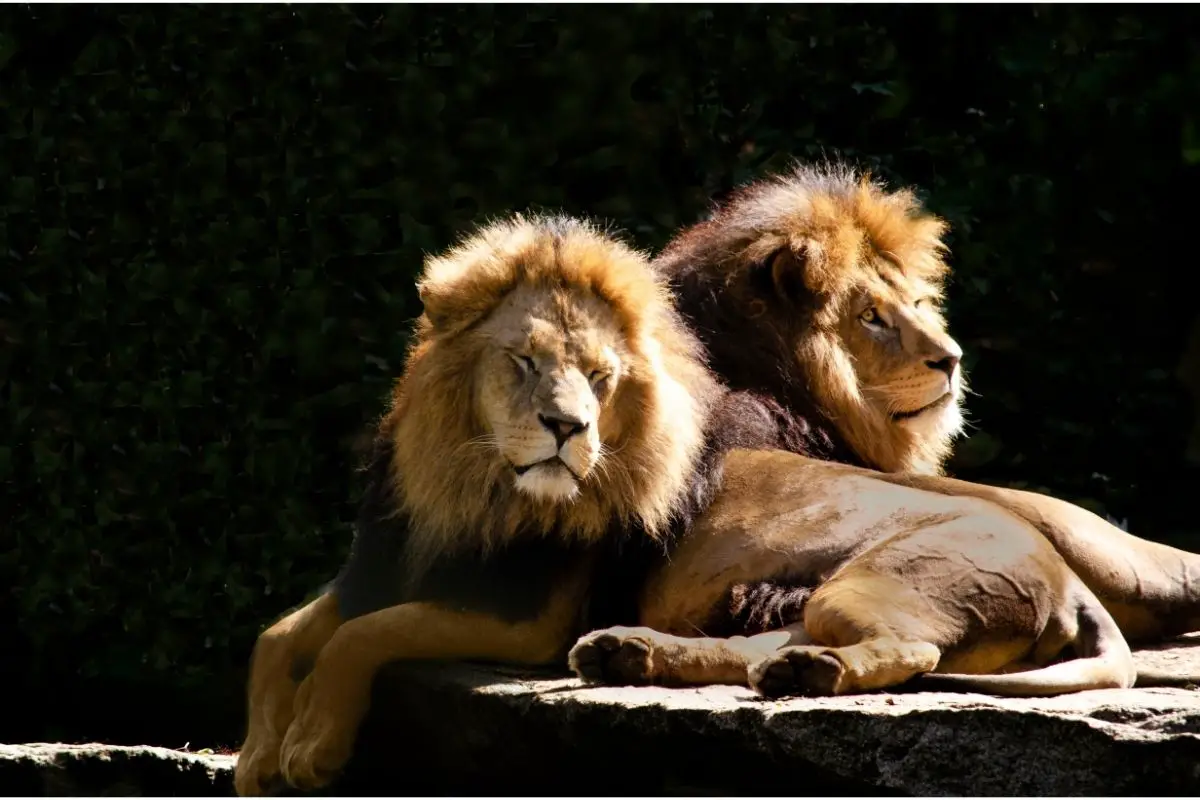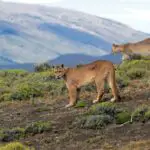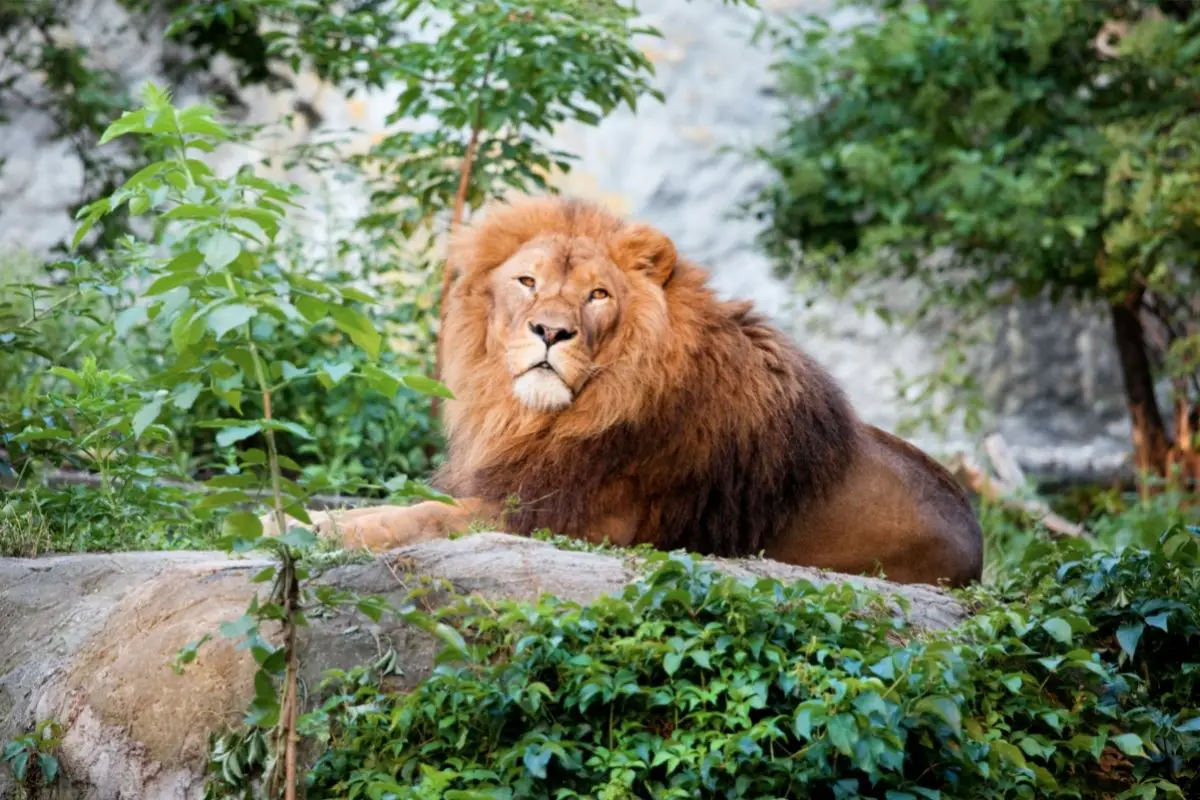Lions are carnivores, which means that they eat only meat, right? There has been some speculation that lions also eat other food sources such as plants and grass because even the king of the jungle needs his 5-a-day, right?
Below we’ll try to answer the burning question, do lions eat grass? Or is it strictly a meat feast? The answer may surprise you.
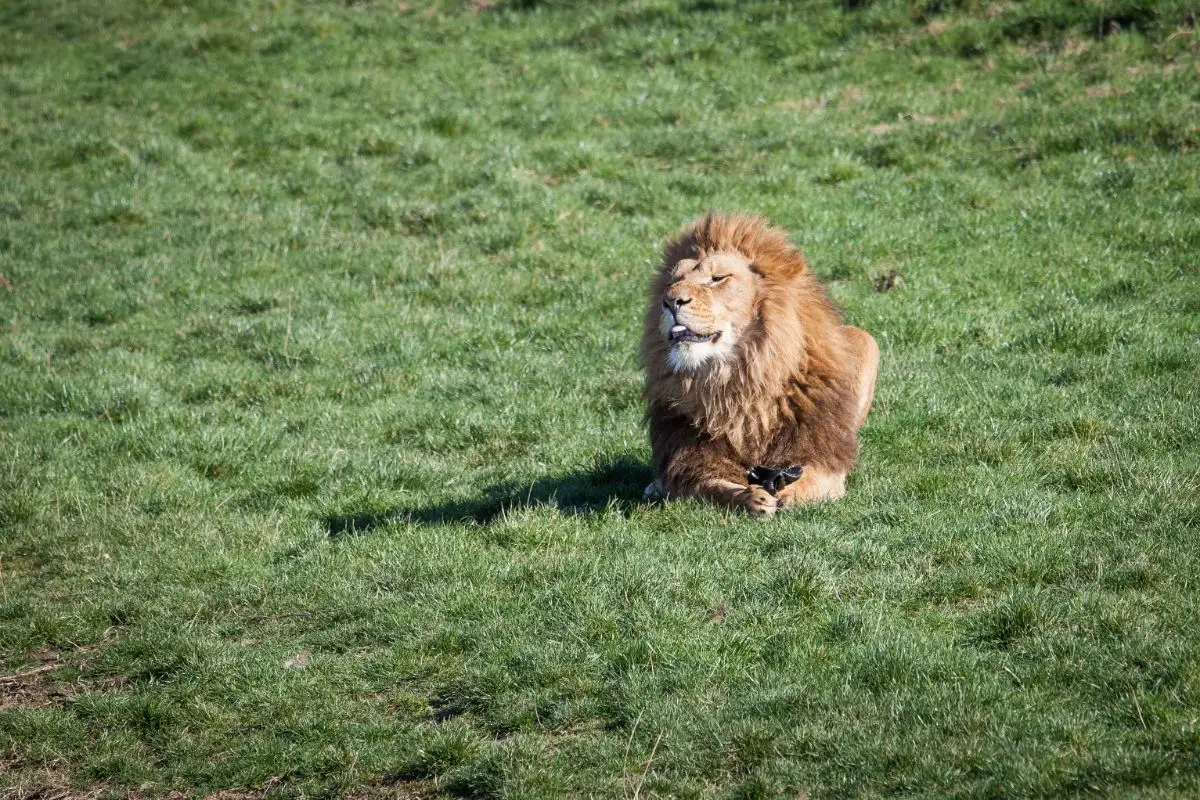
Do Lions Eat Grass?
It may come as a surprise, but yes, lions do occasionally eat grass. Grass contains nutrients and minerals which both herbivores and carnivores need for their bodies to function normally.
Although top predators like lions usually satisfy their nutritional needs by consuming meat, grass can be a supplementary source of nutrients that lions can exploit.
Lions will tend to eat grass or other vegetation if they see it. Depending on their local environment, or what is available to them in captivity, lions might eat small or large amounts of grass.
Just like with humans, diets can vary from lion to lion and it’s likely to spot a lion munching on some grass!
Why Do Lions Eat Grass?
Lions appreciate a salad entree before the main course when eating dinner. No, I’m just kidding. There are several reasons why a lion would eat grass. Some of those reasons are:
- It provides them with a source of water.
- It helps maintain their body weight.
- It helps keep them cool in hot weather.
- It helps to settle stomach aches.
- It’s an easy way to get nutrients.
The nutrients and minerals which lions can get from eating grass are:
- Vitamins B-12 & E
- Fiber
- Calcium
- Iron
- Protein
- Omega 3 Fatty Acids
Grass also contains minerals such as magnesium, phosphorus, potassium, sodium, zinc, copper, manganese, iodine, selenium, cobalt, molybdenum, chromium, boron, nickel, silicon, fluoride, and chlorine.
All of these are integral to keeping a lion healthy and ensuring that it can survive out in the wild.
Can Lions Digest Grass?
Lions would struggle to fully digest grass. This is because lions – like the other members of the cat family – do not produce the enzymes in their stomachs to digest grass.
If you look at a lion’s stomach, you’ll see that it has no crop or rumen and it’s the rumen that secretes certain enzymes, like cellulase, which helps break down the cellulose (a primary component of the fibrous cell walls of plants, vegetables, and fruits).
Yes, lions may eat grass to extract the nutrients they need, but they’ll usually vomit not long after eating it. Their digestive system is designed to process meat efficiently.
Primarily consisting of two parts: the upper part which is used to store fat and the lower part which digests protein.
How Much Does A Lion Eat?
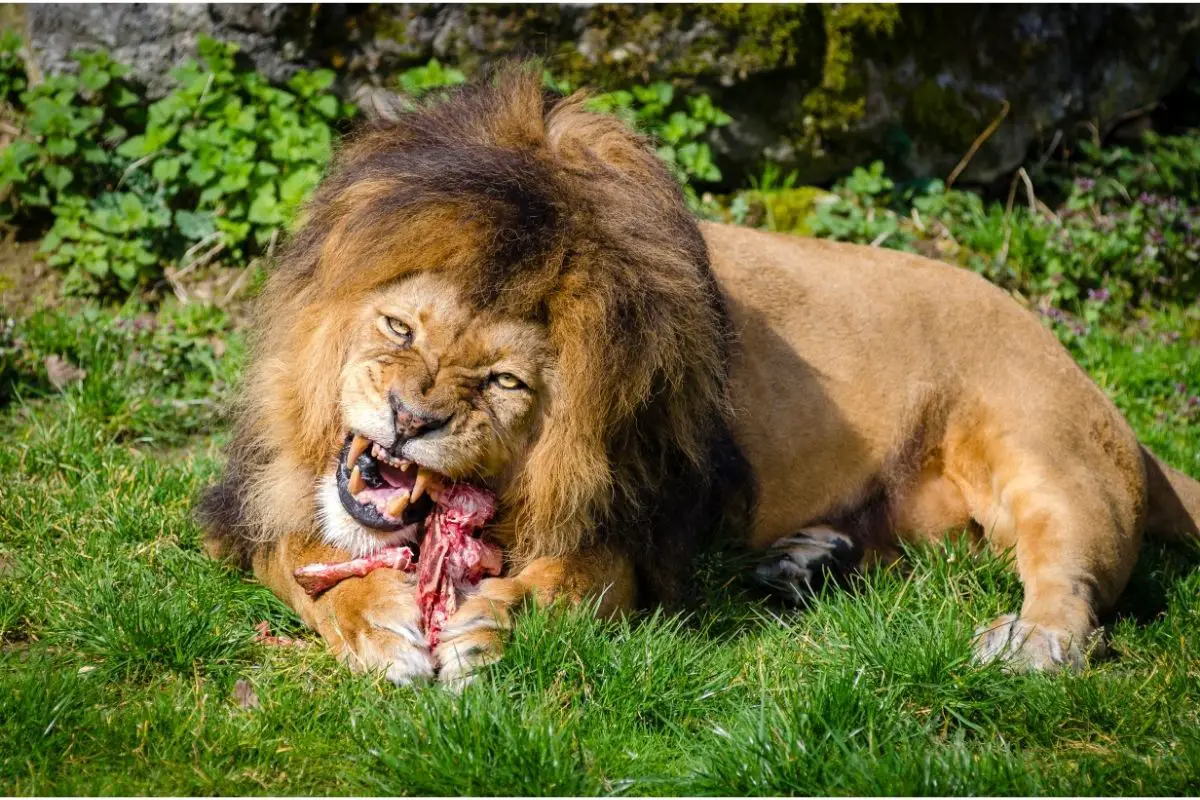
The grass may be beneficial to a lion, but it’s still a carnivore. Meat is still a must. A lion eats about 1/10th of its own body weight in meat, every day.
So a lion that weighs 100 pounds would eat about 10 pounds of food per day. And of course, grass barely contributes to this total, so what exactly is on the menu for lions? Lions usually prey on:
- Antelope
- Zebra
- Giraffe
- Kudu
- Impala
- Warthog
- hippopotamus
- crocodile
- ostrich
- deer
What this list tells us is that lions are ‘generalist hypercarnivores’. This means that they aren’t picky when it comes to food.
They have a very broad diet, ranging from warthogs to hippopotami. Prides have even been seen feasting on a dead elephant, an animal that weighs 20x more than a lion.
The larger the kill, the less likely it is for a lion to resort to eating grass.
Do Lions Eat Everyday?
No, lions do not eat every day. They rarely eat more than once a week. This is partly down to their rather shoddy 19% success rate when hunting solo.
But they are opportunistic creatures and can capitalize on the blunders of their prey during the dry season when food and water are scarce.
But it’s during the dry season when lions can resort to uncharacteristic food choices to survive.
Do Lions Eat Plants?
An underappreciated strength of the lion is its adaptability. When roaming the harsh dry landscapes of the Kalahari Desert, a lion may eat plants and fruits as an alternative source of water.
The water intake that a lion can get from grass is very small, between 2% – 4% of their total daily water requirement.
So they sometimes turn to fruits, leaves, roots, seeds, bark, and even insects, to boost their hydration. Lions have even been known to eat Tsamma melons. A type of watermelon native to central and southern Africa.
Frankly, a lion may eat fruit out of desperation. When he’s gone over a week without a successful hunt; perhaps the watering holes have dried up and prey is scarce.
Then the once magnificent king of the jungle may be forced to scrounge around the arid terrain in search of fruits with high water content. Scavenging where he can for scraps.
The calorie intake from plants, fruits, and grass will not give a lion the energy needed to conduct a successful hunt, but it may just keep him alive.
Recap
So there we have it! Lions most certainly can eat grass. Grass provides them with nutrients and minerals such as fiber, calcium, and Vitamins B-12 & E.
Grass also helps to settle any stomach aches that a lion may have, and it’s an alternative source of water when water is scarce.
And that’s the thing, lions will usually resort to eating grass out of desperation when scraps of food are hard to find.
They are by no means omnivores because their stomachs do not produce the enzymes needed to fully digest grass. Instead, they will usually just vomit out the grass once they’ve extracted all its nutrients.
- Sink Your Teeth Into This: Analyzing the Powerful Lion Bite Force - September 8, 2023
- Siberian Tigers: Everything You Need To Know - September 4, 2023
- Do Lions Eat Humans? Understanding Lion Aggression and Risks - September 4, 2023

